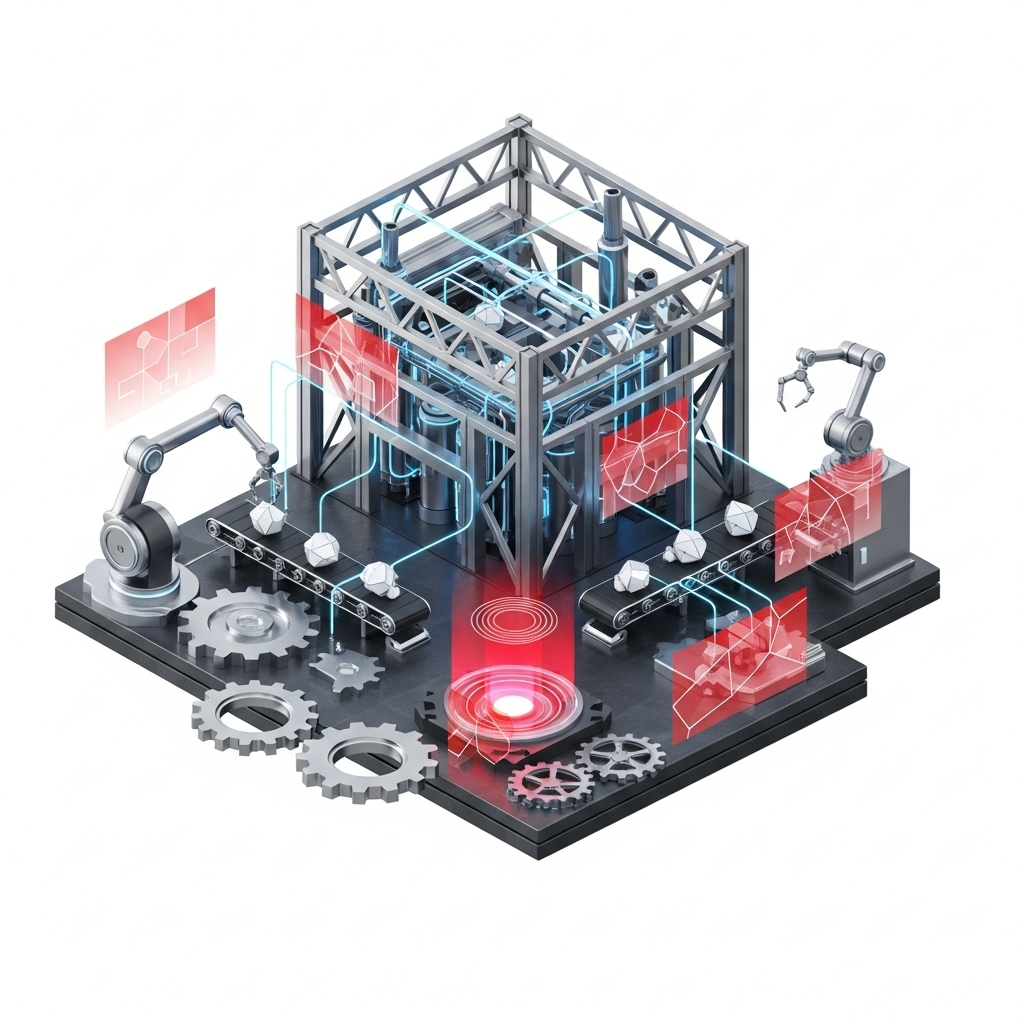Proprietary Processes and Trade Secret Protection
Manufacturing companies possess invaluable trade secrets including proprietary processes, formulations, manufacturing techniques, and operational know-how that form the foundation of competitive advantage. RedactionAPI.net provides specialized protection for industrial intellectual property while enabling essential manufacturing operations, quality control, and process improvement activities.
Advanced process documentation analysis identifies and protects sensitive manufacturing information including proprietary formulations, process parameters, quality control specifications, and operational procedures that could compromise competitive advantage if disclosed to competitors or unauthorized personnel.
Manufacturing data protection ensures that production records, quality metrics, efficiency measurements, and operational analytics receive appropriate confidentiality protection while enabling continuous improvement initiatives and performance optimization programs.
Supply Chain and Vendor Collaboration
Modern manufacturing relies on complex supply chain relationships that require careful sharing of operational information while protecting sensitive business details, pricing information, and competitive advantages from unauthorized disclosure to suppliers, customers, and partners.
Supplier relationship management requires protection of contract terms, pricing negotiations, volume commitments, and strategic relationships while enabling effective vendor performance evaluation and supply chain optimization activities.
Customer collaboration platforms enable sharing of product specifications, delivery schedules, and quality requirements while protecting proprietary manufacturing capabilities and competitive cost structures from customer visibility.
Logistics and transportation coordination requires sharing of shipping schedules, inventory levels, and delivery information while maintaining protection of sensitive operational details and business relationships that could provide competitive intelligence.
Quality Management and Regulatory Compliance
Manufacturing quality management systems generate extensive documentation including inspection reports, test results, non-conformance records, and corrective action plans that require careful protection while enabling regulatory compliance, quality improvement, and customer satisfaction initiatives.
Regulatory compliance documentation for FDA, EPA, OSHA, and other regulatory agencies requires careful redaction of proprietary information while maintaining the detailed records necessary for regulatory submissions and compliance audits.
Quality audit and certification processes require sharing of quality system documentation with third-party auditors while protecting sensitive operational details and competitive manufacturing capabilities from unnecessary exposure.
Customer quality requirements and specifications must be managed carefully to ensure compliance while protecting proprietary manufacturing processes and capabilities that provide competitive advantages in the marketplace.
Research and Development Protection
Manufacturing research and development activities involve highly sensitive information including experimental processes, product development projects, innovation pipelines, and competitive analysis that require specialized protection while enabling innovation and product development collaboration.
Product development documentation requires protection of design specifications, material selections, performance targets, and development timelines while enabling necessary collaboration with engineering teams, suppliers, and customers during product development cycles.
Patent and intellectual property management involves sensitive information about invention disclosures, patent applications, freedom-to-operate analyses, and competitive intelligence that requires careful protection throughout the intellectual property lifecycle.
Technology licensing and partnership agreements require sharing of technical information with potential partners while maintaining appropriate protection of core competitive advantages and proprietary technologies that should not be disclosed.
Operational Data and Industrial IoT Security
Modern manufacturing facilities generate extensive operational data through Industrial Internet of Things (IIoT) systems, sensors, and monitoring equipment that provide valuable insights while potentially exposing sensitive operational information that requires appropriate protection.
Production monitoring systems collect detailed information about equipment performance, process parameters, energy consumption, and operational efficiency that can reveal competitive advantages if not properly protected from unauthorized access or disclosure.
Predictive maintenance and equipment optimization programs require sharing of operational data with technology vendors and service providers while maintaining appropriate protection of sensitive operational details and performance characteristics.
Energy management and sustainability reporting initiatives require sharing of operational information with utilities and regulatory agencies while protecting proprietary process information and competitive operational advantages.
Industrial cybersecurity and operational technology (OT) security require careful balance between enabling operational visibility and maintaining appropriate protection of critical infrastructure information and operational capabilities.

